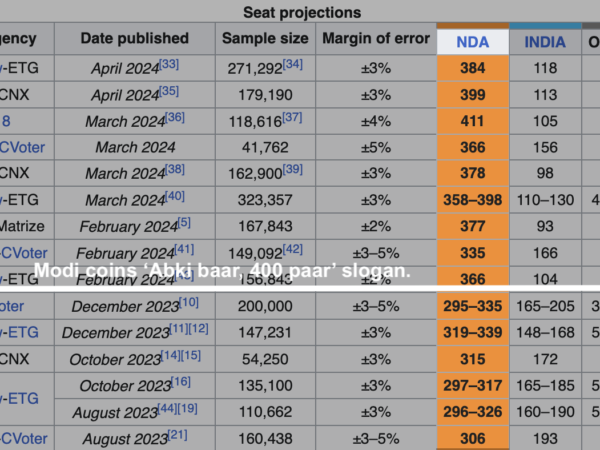This first appeared on LinkedIn.

I think the government is really not on the wrong path in terms of fiscal stimulus, despite what my esteemed friends say.
In fact, my go-to strategy is very close to theirs:
- Offer easy credit to those most in need, with a generous moratorium and low interest for an extended period without collateral or complicated paperwork. Make sure it reaches those that are most likely to cause immediate and sustained impact.
- Release payments pending with the government urgently, whether it means those that the centre owes to states or any government owes any individual or industry.
- Support local industry and domestic businesses.
- Take a look at all laws that trouble the citizens who generate wealth for the nation. Modify, repeal, or rewrite those that do not deliver the stated impact.
- Bring in land reform on a national scale.
- Revisit the direct & indirect tax and import duty rates. Abolish all kinds of backdoors like cess and surcharges.
- Take up massive infrastructure projects to spend money and generate employment.
- Even if you need to print money to do this, do it.
- Even if you need to form a national government to fast-track this, do it.
- Even if you were to forego personal credit for the eventual turnaround of this resilient civilisation, do it.
As you can see, there are many points here that we (the government and I) agree on.
That being said, we do indeed differ on some key aspects, chief of which is defining the following:
- those most in need;
- those likely to cause immediate and sustained impact; and
- those that generate wealth for the nation.
And the difference is this:
- The government seems to think this means business owners and industrialists.
- I think this means the consumers, with the businesses and industries being a subset of these.
If I had to offer a Rs.3 lakh Crore credit, for example, on terms that seem prima facie so lax that my default rates are likely to be in high double figures (and this was taken into consideration while designing the package), I would rather offer a rather large part of it to the salaried, the working class, the central government employees, the farmers, the labourers, the soldiers etc and only a tiny bit to the industry.
If I had to take a relook at the laws that are obstructing my growth and prosperity, I’d rather look at those that are used to cage citizens and restrict their rights, whether as citizens or workers or entrepreneurs or farmers.
The advantage of this would be that the consumers with credit and laws that are more geared towards their welfare will fuel the markets, which will create growth, which will allow entrepreneurs to raise money, which you can then lend at normal interest rates, and which they will be glad to take because debt servicing is more than taken care of by the money they are making. Interestingly, loaning the consumer money on easy terms might actually reduce your planned default, for these law-abiding, God-fearing, hard-working people are more likely to repay their debts than any businesses.
And as an already self-reliant entrepreneur (is there any other kind?), I will tell you one thing: I do not need a handout. I also do not any more liability. What I need is dhanda. And the only way the government can help me get it is by putting money in the hands of my customers, and assuring them that there’s more where that came from. If that can happen, the government can stop worrying about where I will get my money, how I will pay my employees, how I will find raw material, or technology, or capacity, or distribution, or whatever. That is my problem. And a problem I am good at solving. Just get me happy customers with money in their pockets and confidence in their hearts.
Leave the rest to us entrepreneurs. We will make great products/services, we will create happy customers, we will pay huge tax, and we will create prosperity. We don’t need you to incentivise us for it. You have to incentivise the customer to spend. And keep spending.
In summary: Consumer Liquidity + Consumer Optimism = Economic Growth.
And do you know the funny thing about this? This is not socialist or communist or leftist or whatever label you thought you could stick on to me or my opinion.
It is actually capitalism in its full glory. Think about it.














![Mr Baba: 'Would you like to take off the backpack now that you've been downstairs for like 30 minutes?'
Ms Kym-Kym: 'I like it like this. You should try it. It's very comfortable.'
Mr Baba: [Pulling on his backpack] 'Hmmm, you're right. That's rather snug.'
Ms Kym-Kym: 'Twinning! Yay!'
#LuckiestManAlive #BearFamily](https://scontent-lax3-1.cdninstagram.com/v/t51.29350-15/416920031_3373151642830342_6696851954454537274_n.webp?stp=dst-jpg&_nc_cat=105&ccb=1-7&_nc_sid=18de74&_nc_ohc=ZMLmjPdSAEUAX8nnJex&_nc_ht=scontent-lax3-1.cdninstagram.com&edm=ANo9K5cEAAAA&oh=00_AfB0olvUVmnenPKd2wCllMDehg5gzDgAbc4BDsGLqIm6pA&oe=65BA4561)

![Kym: 'Mr Baba, can I tell you something wierd? You can actually get tired from doing nothing!!'
Me: 'It is called boredom.'
Kym: 'Noooo. I mean, like physically tired.'
Me: 'One can get tired and sleepy due to boredom. I remember reading about it somewhere. Let's find out.'
[Some Googling later]
Me: 'It says here that "A new paper published in the journal Nature Communications finds that a part of the brain that is associated with motivation and pleasure - the nucleus accumbens - also can produce sleep. The new findings may explain why we have the tendency to fall asleep in the absence of motivating stimuli, i.e., when bored." Isnt it interesting?'
Kym: 'I already knew that. Why do you need to research things we already know?'
Me: [Finding a subject worth talking about now]: ' Ah well, that's what we'll talk of tomorrow on your morning run. It's very interesting the way science is done and our understanding of the universe is expanded.'
Kym: 'Can we talk of unicorns instead?'
Me: 'Sure. How do you know they exist? That's an interesting question too that you can use the scientific method to answer.'
Kym: 'Do they have to exist for us to talk about them? We can just pretend they do for an hour and have fun.'
Me: [Laughing] 'Yes, sure. We can do that too.'
#BabaBabyConversations #BearFamily #KymAndI](https://scontent-lax3-1.cdninstagram.com/v/t51.29350-15/416410840_383105434396466_2267910263456009774_n.webp?stp=dst-jpg&_nc_cat=104&ccb=1-7&_nc_sid=18de74&_nc_ohc=LIozs445JFcAX_48wGC&_nc_ht=scontent-lax3-1.cdninstagram.com&edm=ANo9K5cEAAAA&oh=00_AfDQ2qbb0yO_wUmLj_L0ZxF61eDdwlIN-vyrd8GZe_pBMQ&oe=65BAFA57)










